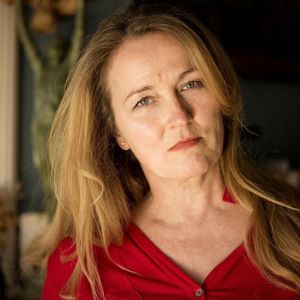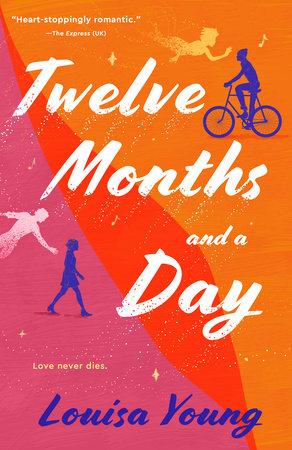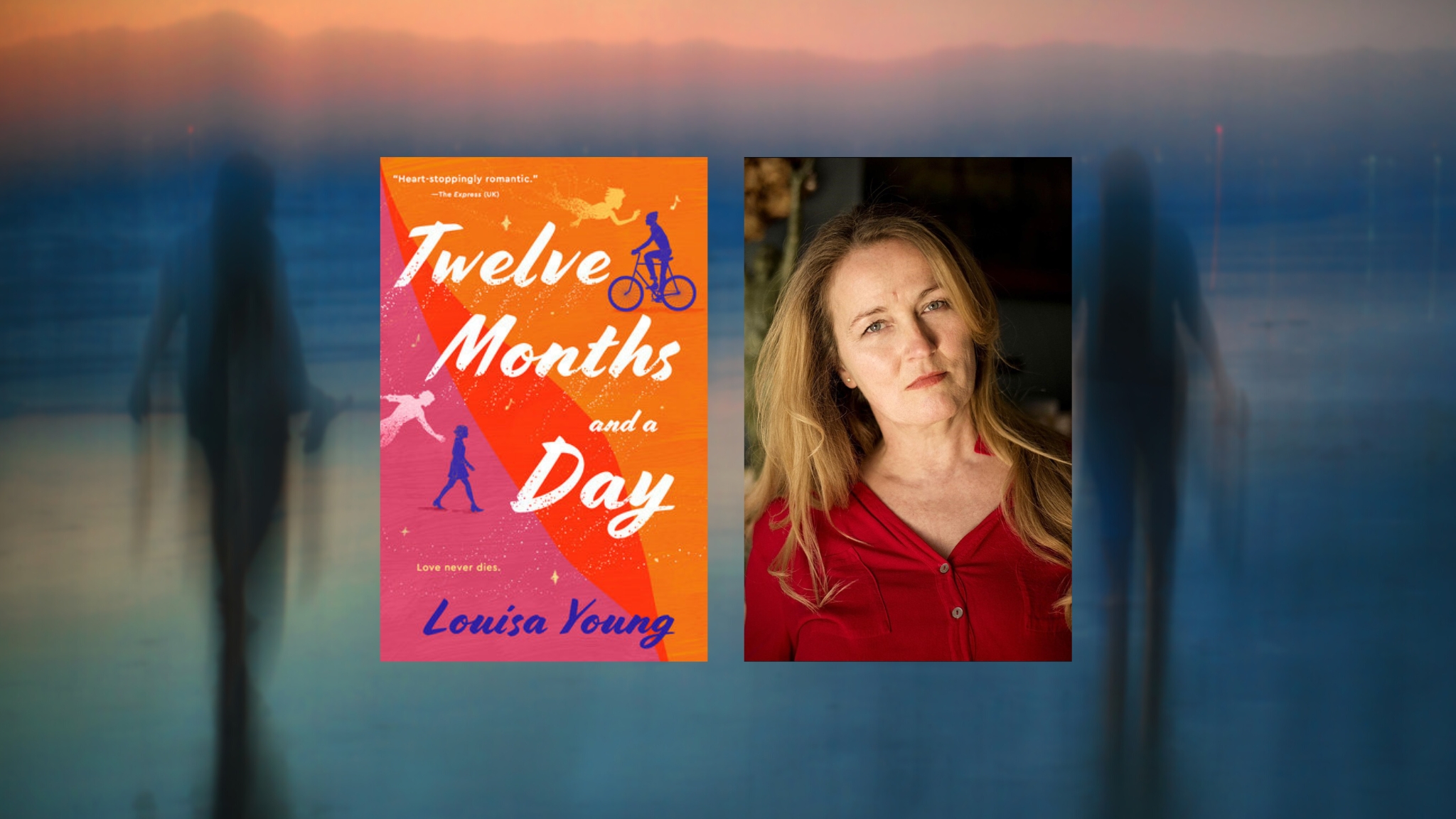Twelve Months and a Day by Louisa Young
Twelve Months and A Day (G.P. Putnam’s Sons) is a riveting story of love lost and second chances. In Louisa Young’s carefully crafted supernatural novel, two peoples lives are upended by their partners’ untimely deaths. For both Roisin, whose fiancé Nico’s sudden death is shocking, and for Rasmus, whose young wife, Jay, dies after a serious illness, there is little left that feels right. Filled with sorrow, they struggle through their daily rituals.
All the while, the two sprightly ghosts of the departed hover over their widowed partners on earth. But when the ghosts realize that life is for the living, their matchmaking begins. We follow their every step, not only curious but emotionally invested in the outcome.
In this poignant tale of redemption and hope, we find unforgettable characters on both sides — the living and the dead — who are fated to find new strength, joy and purpose.
In a recent interview, Young shared her thoughts on grief and love, and her process behind this captivating novel.
Q. What a compelling string of themes — loss, new chances, how limited time is with those we love. How did the idea for Twelve Months and A Day come about?
A. Well, I was a young widow, and my boyfriend was a young widower; we’re both novelists with hyperactive imaginations, so of course we wondered how our lost partners would have got on. I’d already written a serious book about grief and the alcoholism which killed my darling, so it was lovely to come up with a loving and hopeful story about ghosts and romance and real love.
Q. Roisin and Rasmus both lost their partners much too early in their lives. How was it writing about their grief?
A. Through [my partner] Robert’s death, I came to know grief well. I’d spent a lot of time with grief: living it, surviving it and writing about it. My memoir, You Left Early: A True Story of Love and Alcohol, was difficult — and bleak and funny and loving — both to write and maybe to read; it was a great relief to finish it and move on. So I kind of worked out my grief through that. But whatever happens, you don’t really move on from grief. You kind of come to terms with it.
So in this novel, I was thinking about what we do with the love we had for a dead person and the love they had for us. Here, I wanted to move through their grief fairly quickly because really nobody wants to read too much about that, and to look at love in a new way: the love experienced by the ghosts.
Q. Music is a big part of the novel and you included some song lyrics. Had you planned to weave this into the book from the start? What does music mean to you?
A. I’m a songwriter; my late husband was a composer. Music is everything. It’s a big part of all my novels, and I often have a track or two or an acapella song on my audiobooks. I don’t have to weave music in — it’s already there.
Q. What is your message about family and friends in the aftermath of such personal tragedy?
A. People die; love doesn’t. We find ourselves left with all this love but without an object for it. So we have to find new things to do with it. And lord knows the world is full of things that need love. We just have to spread it around.
Q. Your characters are distinctive. How did you decide on their backstories?
A. I don’t really decide. My novels are very organic. They grow. I observe and think and steer a little, and then write. Basically, it’s all daydreaming. I know some authors plan out plots and backstories and so forth, but for me it’s always been more like playing with my imaginary friends, getting to know them as they develop through the writing. I usually don’t know what they’re going to do until they do it.
I’m a Londoner, and London has always been a hugely diverse city. I’m partly Irish, Scottish, Australian, and (a very small part) Greek; my boyfriend is Dutch Australian, my lodgers are Irish, and my daughter is half Ghanaian. Having characters of different backgrounds just reflects everyday reality.
Q. Destiny is a part of your story, but not one we can control. What is your message?
A. I once knew a child called Destiny. She was very willful and her mum was constantly running after her, calling ‘Destiny! Come back here and do what you’re told!’. Obviously, I found that hilarious.
Personally, I don’t believe in destiny. We just do what we can to be kind and decent and weave our way through whatever’s going on causing as little harm as possible.
Q. Are you working on another novel and can you share anything about it?
A. I wish. I really do. But I’ve actually decided to do something really different and write a musical. Why not? So with luck I’ll have a scorching show on Broadway for you in a year or two. Wish me luck…
 About Louisa Young:
About Louisa Young:
Louisa Young was born in London and studied history at Cambridge. She co-wrote the Lionboy series with her daughter and is the author of nine further books including, the bestselling My Dear I Wanted to Tell You, which was short-listed for the Costa Novel Award and was a Richard and Judy Book Club choice, and Baby Love, long-listed for the Orange Prize. Her work is published in thirty-six languages. She lives in London.






